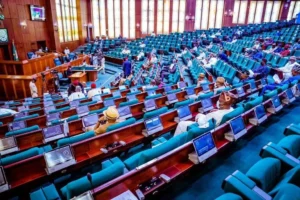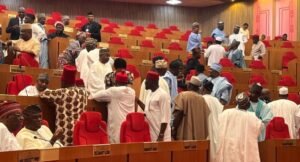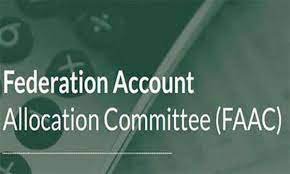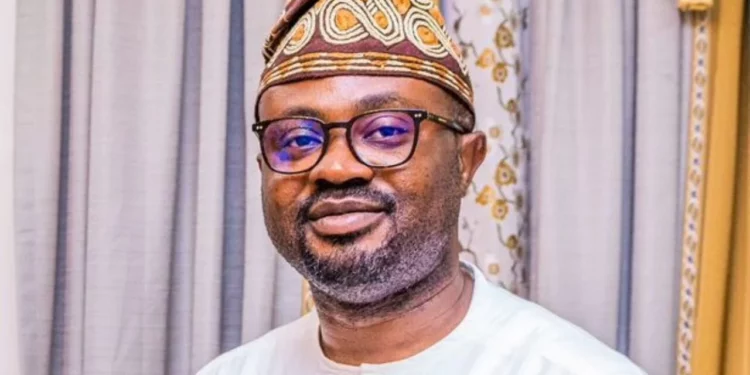The House of Representatives’ proposal to create 31 new states has sparked a debate about its viability, especially since the existing 36 states struggle to sustain themselves without federal financial allocations. Korede Abdullah, Africa Health Report’s Southwest correspondent, examines the implications of this move.
More States, More Problems?
In a surprising move, the Nigeria’s House of Representatives Committee on Constitution Review on Thursday February 6, unveiled a proposal, seeking to reshape the nation’s administrative landscape by creating 31 new states.


The initiative, presented by Deputy Speaker Benjamin Kalu during a plenary session, outlines a meticulous roadmap for state creation, trying to establish the imperative of broad-based support.
As the proposal succinctly states, “The committee proposes the creation of 31 new states… An act of the National Assembly for the purpose of creating a new state shall only be passed if it requires support by at least the third majority of members”.
If it sails through he proposed creation of new states would bring the total number of sub-national governments in Nigeria to 67, up from the current 36 states and the Federal Capital Territory.
An investigation Endless Journey
According to an Abuja-based political scientist, who spoke with Africa Health Report (AHR), Mr. Oluwadare Murtala Dauda, Nigeria’s journey to its current 36-state structure began with the country’s regional arrangement, which consisted of three regions: Northern, Western, and Eastern, established by the Richard’s Constitution in 1949.
“In 1963, the Mid-Western region was introduced, bringing the total number of regions to four. However, this arrangement was short-lived, as the military regime of Yakubu Gowon dissolved the four regions in 1967 and created 12 states to replace them.” Mr. Dauda explained.
According to the political scientist, the creation of states continued over the years, with subsequent military rulers contributing to the expansion. Murtala Muhammed added seven states in 1976, bringing the total to 19.
“Ibrahim Babangida created two states in 1987 and nine more in 1991, increasing the number to 30 Finally, Sani Abacha established six additional states in 1996, bringing the total number of states in Nigeria to 36. This transformation has had a profound impact on the country’s governance, economy, and social structure.”, he said.
Nigeria’s Geopolitical Imbalance
The creation of states in Nigeria has been a subject of controversy, with many complaining that the process was deliberately skewed to favour Northern Nigeria.
A closer look at the country’s six geopolitical zones reveals a striking imbalance. The Southeast zone, comprising Abia, Anambra, Ebonyi, Enugu, and Imo states, is the only zone with just five states, while the other zones have six states each.
This disparity has resulted in the Southeast receiving the least amount of revenue allocation in the Federation.
Creation of States, Controversial Subject
The creation of states in Nigeria has been a subject of controversy, with many arguing that the process has been skewed to favour certain regions. A case in point is the division of Kano State in 1991, which resulted in the creation of Jigawa State.
This move has been perceived as one of the many injustices perpetuated by the lopsided revenue allocations and political inequities that favour the northern region.
For instance, in 2015, the southeast zone had no representation in the leadership of all arms of government, a situation that was attributed to the zone’s inability to produce ranking senators or members of the House of Representatives on the platform of the APC.
The southeast zone’s limited representation and revenue allocation have significant implications for the region’s development. The zone’s interests are often not adequately protected due to the states and local government areas created by military fiat, which have hollowed the region’s ability to be effective.
This has led to calls for the restructuring of Nigeria, with many advocating for a more equitable distribution of resources and representation.

Revenue Allocation Injustice
Some Nigerians have expressed concerns over the perceived injustice in revenue allocation from the federal government, citing a disproportionate favor towards northern states.
Mr. Ololade Bello, a public affairs analyst, highlighted the disparity between Lagos and Kano states. Both states initially had 20 local government areas (LGAs), but while Lagos retained the same number, Kano grew to 77 LGAs.
This significant difference in LGAs has resulted in Kano receiving substantially more revenue allocation than Lagos, despite the latter’s dense population.
The revenue allocation formula has been a subject of debate, with many arguing that it perpetuates inequality among states. The Federation Account Allocation Committee (FAAC) distributes revenue to the three tiers of government based on a formula that considers factors like population, landmass, and revenue generation.
However, critics argue that this formula is outdated and favours certain states over others. For instance, in August 2024, the FAAC allocated N1.203 trillion to the three tiers of government, with the federal government receiving N374.925 billion, states getting N422.861 billion, and local government councils receiving N306.533 billion.
This allocation has raised concerns among some Nigerians, who feel that the current revenue allocation system needs to be revised to ensure fairness and equity among all states.

Southeast Limited Representation
The Southeast region of Nigeria continues to bear the brunt of inadequate representation and revenue allocation, stifling its potential for growth and development. With only five states, namely Abia, Anambra, Ebonyi, Enugu, and Imo, the Southeast is the smallest geopolitical zone in the country.
This limited representation has resulted in the region receiving the lowest revenue allocation from the federal government, exacerbating the existing developmental disparities.
Experts argue that the Southeast’s underfunding has far-reaching consequences, including inadequate infrastructure, poor healthcare, and limited economic opportunities. The region’s rich cultural heritage and tourist attractions which have remained underdeveloped due to lack of funding.
Analysts say the Southeast’s underdevelopment threatens to widen the country’s regional disparities, underscoring the need for a more equitable revenue allocation formula
Potential Impact on State and Local Economies
On the positive side, proponents argue that new states could lead to localized economic growth by attracting more government projects, creating job opportunities, and improving infrastructure. For example, the establishment of new state capitals would require roads, schools, and hospitals, which could spur construction and employment.
Dr. Abiodun Lasisi, a development economist, explains that “state creation can lead to increased economic activity in newly established capitals, as government presence often attracts businesses, banks, and service providers.” However, she cautions that such growth may be short-lived if the state lacks sustainable economic foundations.
A major concern is whether newly created states will have sufficient resources to sustain themselves. If they are not economically viable, they may struggle to fund essential services, leading to underdevelopment rather than progress.
Case for Creation of States
The agitation for state creation in Nigeria is a longstanding issue, driven by various factors including ethnic and regional demands, as well as administrative convenience.
The country’s history of state creation dates back to 1943 when Nnamdi Azikiwe recommended the division of Nigeria into eight units. Since then, the number of states has increased to 36, with several more being demanded.
Proponents of state creation argue that it brings government closer to the people, promotes rapid infrastructural development, and broadens political participation.
State Creation: A Costly Venture?
As the discussion over the state creation is still going on, proponents are arguing that it would bring governance closer to the people and promote regional development.
Critics argued that the exercise has significant economic implications, particularly in terms of viability and sustainability. Many of the newly created states, they contend, are economically unviable, relying heavily on federal allocations to survive.
Political analysts warn that such a move could have far-reaching economic and political consequences, particularly in terms of governance costs, financial strain on the federal government, and economic inequalities.
Increased Cost of Governance
One of the most pressing concerns is the additional cost of governance. The creation of new states would necessitate new state governments, legislatures, and bureaucracies, significantly increasing administrative expenses.
Alhaji Oluwole Malik, a political economist, notes that “each new state will require a governor, deputy governor, commissioners, state assembly members, and an extensive bureaucratic structure. This will drastically expand recurrent expenditure, leaving fewer resources for actual development.”
He argued that in an era where Nigeria already struggles with bloated government spending, adding more administrative layers could divert funds from critical sectors like education, healthcare, and infrastructure.
“The overhead costs of governance could surpass the developmental benefits that new states are expected to bring.”, he asserted.
Financial Burden on the Federal Government
Nigeria’s revenue allocation formula distributes funds from the central government to states and local governments. With the creation of new states, the demand for federal allocations will increase. Given Nigeria’s reliance on oil revenue—which has been fluctuating in recent years—this could put additional strain on the federal government.
Political analyst Dr. Usman Sulaiman warns that “many of the existing states are already financially unsustainable, relying heavily on federal allocations rather than internally generated revenue. Creating more states will further stretch federal resources, potentially leading to financial instability.”
“The costs associated with creating new states, including the establishment of new governments, bureaucracies, and infrastructure, are substantial, and place an additional burden on the country’s already strained finances.”.
The critics also point out that state creation has not necessarily led to improved economic outcomes for the citizens of the new states. In many cases, the creation of new states has simply led to the redistribution of existing resources, rather than the creation of new ones.
This, they argue, has done little to address the underlying economic challenges facing the country, including poverty, inequality, and unemployment.
Risk of Unequal Distribution of Resources and Opportunities
The creation of new states often comes with political considerations, leading to fears of resource allocation imbalances. Some regions may benefit more than others, deepening existing inequalities.
Mr Ibrahim Adeyemi, a governance expert, notes that “state creation in Nigeria has historically been influenced by political lobbying rather than economic viability. This has led to situations where some states thrive while others remain impoverished.”
Furthermore, competition for federal allocations could lead to tensions among states, exacerbating regional rivalries. If not managed carefully, state creation could become a tool for political patronage rather than genuine development.
Analysts are of the view that while the creation of new states in Nigeria has the potential to enhance local governance and economic activity, the associated costs and risks cannot be ignored.
They stressed that increased governance expenses, a greater financial burden on the federal government, and the risk of economic imbalance could outweigh the benefits if not strategically planned.
Political analysts suggest that before creating new states, Nigeria must focus on strengthening the financial independence of existing states, improving revenue generation, and ensuring that governance structures are efficient. Without addressing these fundamental issues, state creation may do more harm than good in the long run.
Priorities Over Politics
Just like some Nigerians who have expressed their views, an Abuja-based legal expert Kolade Adeosun has criticized the push for the creation of new states, arguing that lawmakers should focus on more pressing national concerns.
Speaking exclusively with Africa Health Report, Adeosun emphasized that the country is grappling with severe economic hardship and escalating security challenges. He stressed that instead of diverting resources to state creation, legislative efforts should be directed at passing bills that alleviate economic burdens and strengthen national security.
Adeosun highlighted the urgent need for policies that address inflation, unemployment, and insecurity, which continue to impact millions of Nigerians. He warned that pursuing additional states would only stretch the nation’s already strained finances, potentially worsening governance inefficiencies.
Calling on lawmakers to prioritize citizens’ welfare, he urged them to enact laws that promote economic stability and enhance public safety, rather than engaging in politically motivated territorial expansions.



